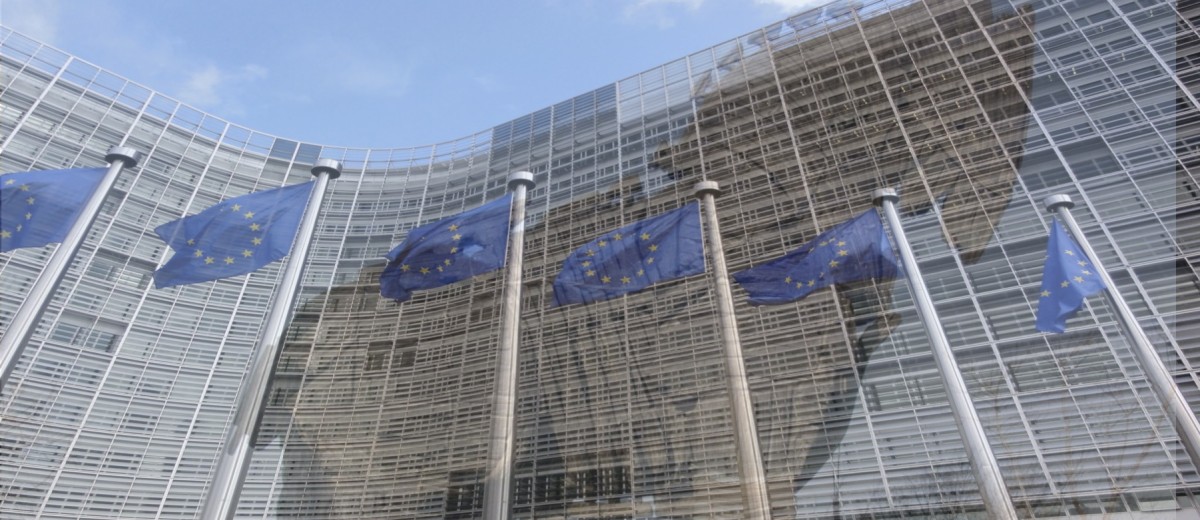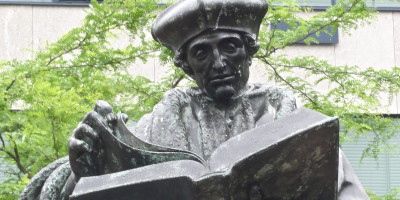So, David Cameron has got a deal of sorts. He now has to convince his British electorate to vote to stay in the EU. Looking at the big picture, there can only be one winner from a Br(itish)exit: Vladimir Putin.
That fact alone should be enough to inform the British how to vote. Putin has been quietly building his Trojan horse within the European Parliament, wooing both left and right extremists. While railing at the ‘fascists’ in Kyiv, Putin at the same time hails Marine Le Pen as the greatest politician in Europe. Le Pen in turn backed Putin’s takeover of the Crimea. Promoting his own brand of Russian nationalism, he invests in the efforts of the Le Pens, Wilders, Orbans and Farages of Europe to undermine European solidarity.
A Brexit would be a victory for his campaign to erode the ‘unity in diversity’ model that has been developed over the past sixty-six years since Robert Schuman’s proposal to form a European Coal and Steel Community, on May 9, 1950.
I sympathise with the British voters. They are being forced to make a decision for the referendum (on June 23) in a highly emotive atmosphere fueled by arguments from both sides too often reduced to economics. I have often wondered what the British did to deserve their unique tabloid press which shouts half-truths from two-inch font headlines as if the readers were imbeciles. I trust the vote outcome will prove that judgement wrong.
Breakup
I sympathise because the voters face a Hobson’s choice: neither outcome will be satisfactory. A ‘no’ vote will leave them on the outside of a still-powerful socio-politico-economic bloc which will shape much of their future, but without a place at the table–like Norway and Switzerland today whose laws are quietly being lined up with EU legislation without their public’s awareness. The so-called ‘United’ Kingdom is divided over the vote along national lines: the Scots, Welsh and Northern Irish are generally pro-EU. If the largely English ‘no’ vote prevails, those divisions could increase, forcing perhaps a fresh Scottish referendum, and–who knows?–the breakup of the UK.
Yet a ‘yes’ vote would leave Britain part of an EU which has lost her moral compass. A spiritual malaise, a crisis in the soul of Europe, is being laid bare by the refugee crisis. Many Europeans give only lip-service to the professed values of solidarity, freedom, equality and human dignity. The revival of a ‘fascist’ mentality of Blud-und-Boden (blood-and-soil) preached by Putin’s European friends mentioned above, and now sweeping Republican America, is cause for alarm. It judges people on the basis of race and territory, a fundamentally anti-Christian attitude. In Christ, said Paul, there is neither Jew nor Gentile. The revolutionary Christian gospel declares that we can all receive new identities in Christ.
Answers
So, what is the answer? Not to jump ship, but to ask what sort of Europe we should work towards. The European project was birthed after World War Two primarily by believers asking that question in more critical times than now. What was their vision then? How can we recover that vision today? And what is our responsibility and contribution as believers to that process?
Here’s the good news. God is stirring his people to respond proactively. Monday evening I was in Brussels for the presentation of the book, God and the EU, faith in the European project, a British(!) initiative to encourage informed action towards shaping Europe’s future on healthy moral and spiritual foundations. Tuesday I was in The Hague meeting with prayer leaders of the EU of Prayer network preparing for a week of prayer in April during the Dutch presidency of the EU. Wednesday I was in Amsterdam working on preparations for the State of Europe Forum there on May 8 & 9, the sixty-sixth anniversary of the Schuman Declaration mentioned above, when politicians, economists, environmentalists, activists, theologians, church leaders, academics and educationalists will gather over Europe’s future. Thursday I met with Roy Searle, well-known British church leader in the Netherlands to talk about new monasticism as a fresh missionary model for re-building society.
On Saturday I caught the last session of the three-day European Social Week, a gathering of Europeans from business, politics, church and society concerned with shaping a Europe based on Christian values. Among other stirring contributions, I heard about the Mondragon cooperative model from Spain’s Basque country, the country’s seventh biggest industrial group. Developed on Catholic social teaching, the cooperative embraces 260 businesses and cooperatives with a total annual turnover of €11,875 million, yet has never laid off any of its 74,000 workers–after 60 years! Top salaries are no more than six times minimum wage. Yes, there are answers to be found. This is no time to throw in the towel.
All concerned about searching for such answers are urged to join us in Amsterdam at the State of Europe Forum. Registrations are now open.
Till next week,




Most British people love Europe and Europeans, but many, perhaps a majority do not love the EU. Far too many laws and decisions are made by bureaucrats, who may be well meaning but are unelected and unaccountable. The antics in the British House of Commons may look childish or absurd but at least government ministers can be challenged by their political opponents and held to account. The EU is too large and unwieldy.
Mark Shephard (UK)